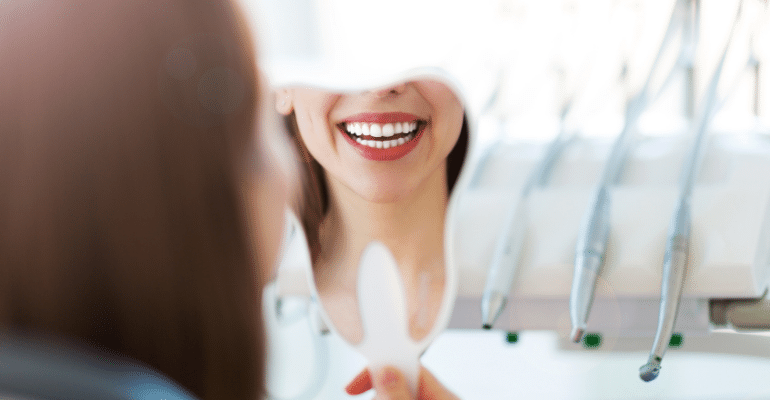Not so long ago, cosmetic dentistry and, in particular, veneers, were only associated with the rich and famous but thanks to the advent of composite resin, dental veneers have become widely available and affordable for everyone
There are primarily two types of dental veneers: porcelain and composite. Determining which type of veneer is right for you comes down to multiple different factors.
So, How Long Do Veneers Last?
porcelain is often just as strong or stronger than natural enamel, so you won’t have to worry about them breaking just from biting into a piece of food. On average, porcelain veneers tend to last for about 10 years, but they can last for even longer with the right maintenance. Many patients have porcelain veneers that still look great after 20 years.
What Is The Difference Between Porcelain And Composite Veneers?
Porcelain veneers are thin shells of porcelain adhered to the outer-surface of the tooth. Composite veneers are engineered resin affixed to the outer-surface. Both are made to match your teeth (or whiten) and improve your overall smile.
Are Porcelain Veneers Permanent?
Although porcelain veneers are not considered a permanent procedure since they will likely have to be replaced at some point, they can last for decades as long as you take care of them properly. Some patients may never need to replace them at all.
With routine dental hygiene and regular visits to your dentist, dental veneers can last for many years without breakages or discoloration. It’s also worth noting that the process itself is typically irreversible because, according to the American Dental Association, your dentist must remove a small amount of enamel from your tooth to accommodate the veneer(usually just a millimeter). That means that if you need to remove a veneer, you’ll have to replace it with a new one.
Are Veneers The Best Option?
Dental veneers are suitable for people who want to hide minor dental imperfections and smile with confidence. The main purpose is to improve the cosmetic appearance of teeth. Dental veneers look and feel like natural teeth, so they’re difficult to detect. This is a suitable option for people with healthy gums and over all oral health. Popular reasons for getting veneers:
- Broken, chipped or cracked teeth
- Discolored or stained teeth
- Gaps between teeth
- Obvious fillings
- Crooked, oddly shaped or eroded teeth
- Teeth that stand out because they’re too small or uneven
- A small amount of crowding in the mouth
Please note, your dentist will speak to you about alternative treatments if you have active gum disease or badly damaged teeth (veneers aren’t suitable in such cases).

How To Make Your Veneers Last Longer
Even though there is nothing you can do to extend the lifespan of your veneers, you can ensure that you get at least a decade and your money’s worth out of them by taking proper care of them. The best ways to protect your veneers include:
Good Oral Hygiene
You can protect your veneers by brushing your teeth at least twice a day and flossing regularly. You should also visit your dentist at least twice a year for regular checkups. During your dental exam, you can ask your dentist to recommend dental products that can help you maintain your veneers.
Wear Protection
If you live an active lifestyle and engage in a lot of physical activities, you increase the risk of damaging your veneers. You can protect your veneers by using protective gear like wearing a mouthguard when you engage in physical activity to prevent the veneers from chipping or cracking.
Do Not Use Your Teeth As Tools
A lot of people have a bad habit of using their teeth as tools. They bite their fingernails instead of using nail clippers and open bottled drinks with their teeth instead of using bottle openers. Using your teeth in this manner is a great way to invite germs into your mouth as well as to chip or crack your veneers.
Do Not Grind Your Teeth
Teeth grinding wears down your teeth and can cause serious damage to your teeth. However, most teeth grinders do it in their sleep and are not aware that they do so. If you grind your teeth, you should ask your dentist to make a mouthguard for you to use when you fall asleep so that you do not damage your veneers while you sleep.
Dental Veneer Aftercare
Dental veneers do not require any special care. Continue to follow good oral hygiene practices, including brushing, flossing, and rinsing with an antiseptic mouthwash as you normally would.
Even though porcelain veneers resist stains, your dentist may recommend that you avoid stain-causing foods and beverages (for example, coffee, tea, or red wine).
Dental Veneer In Arlington Heights
If you are interested in dental veneers, either for yourself or for a loved one, you can schedule an appointment Online or Call us at 847-483-8833 to discuss veneers with our cosmetic dentist today.





